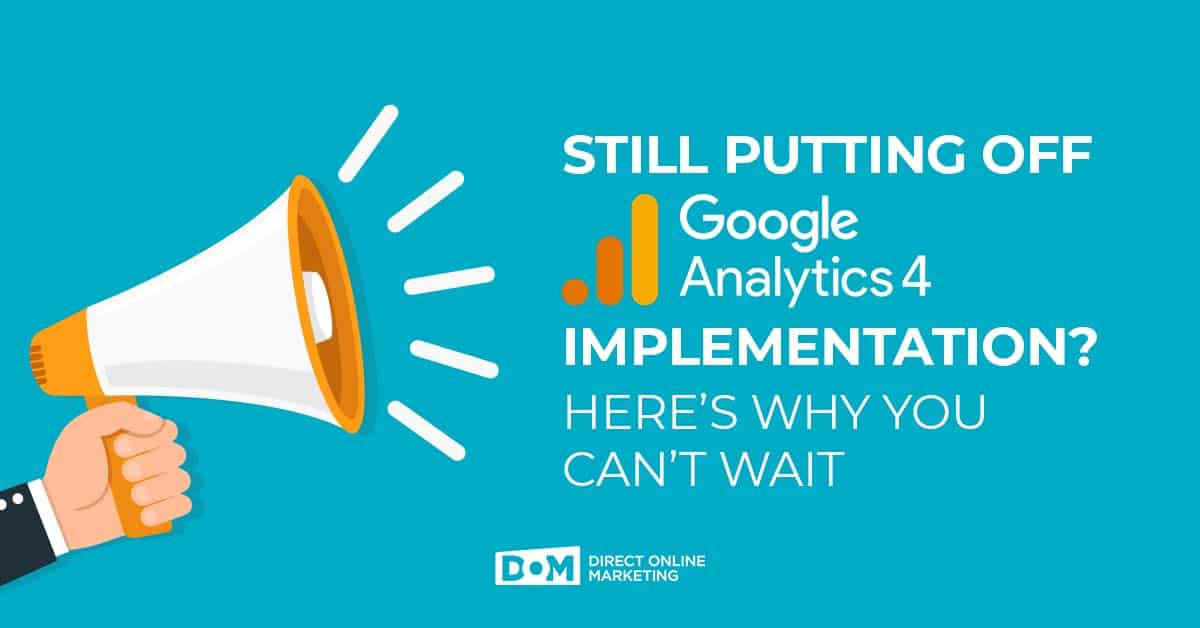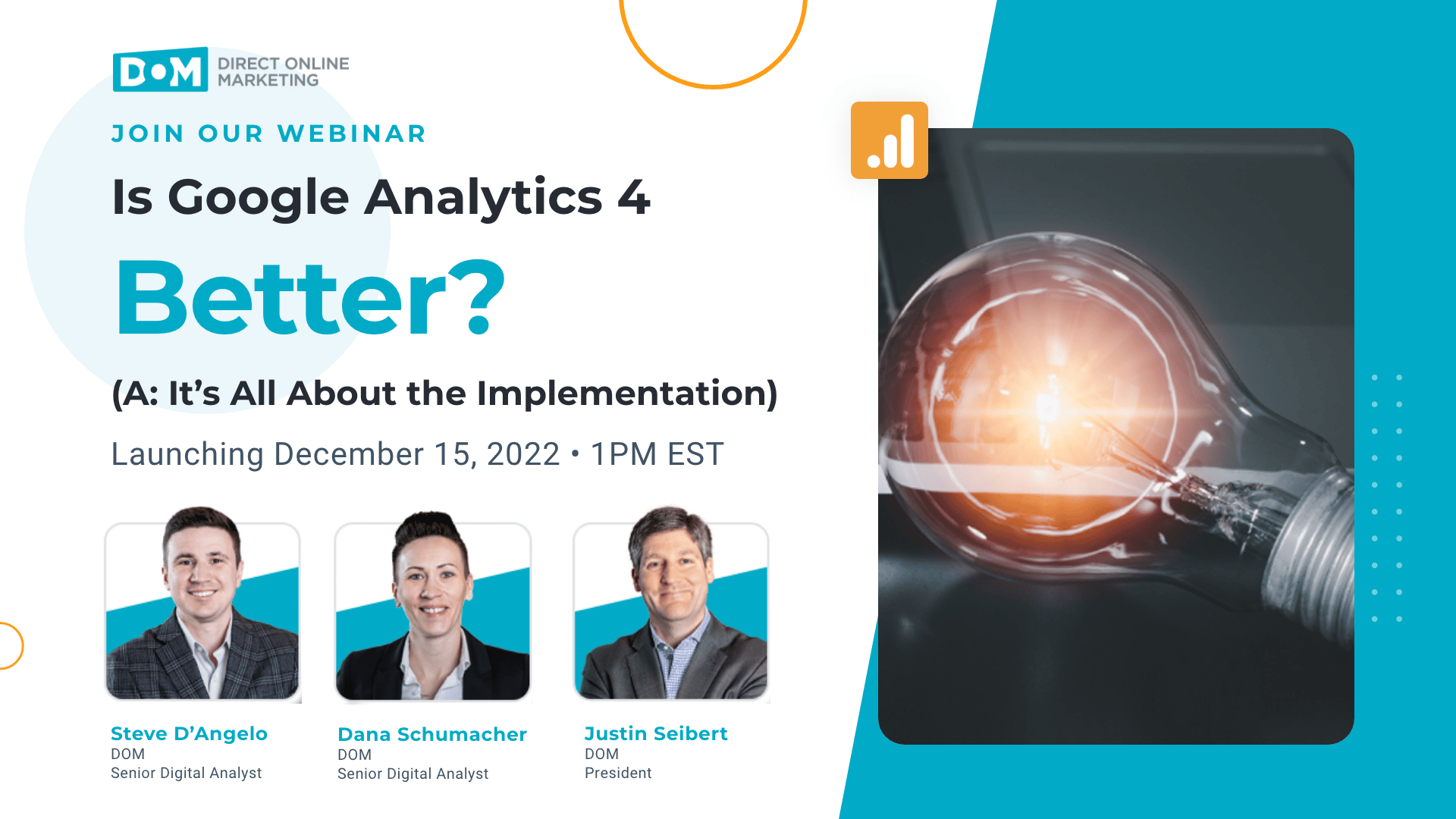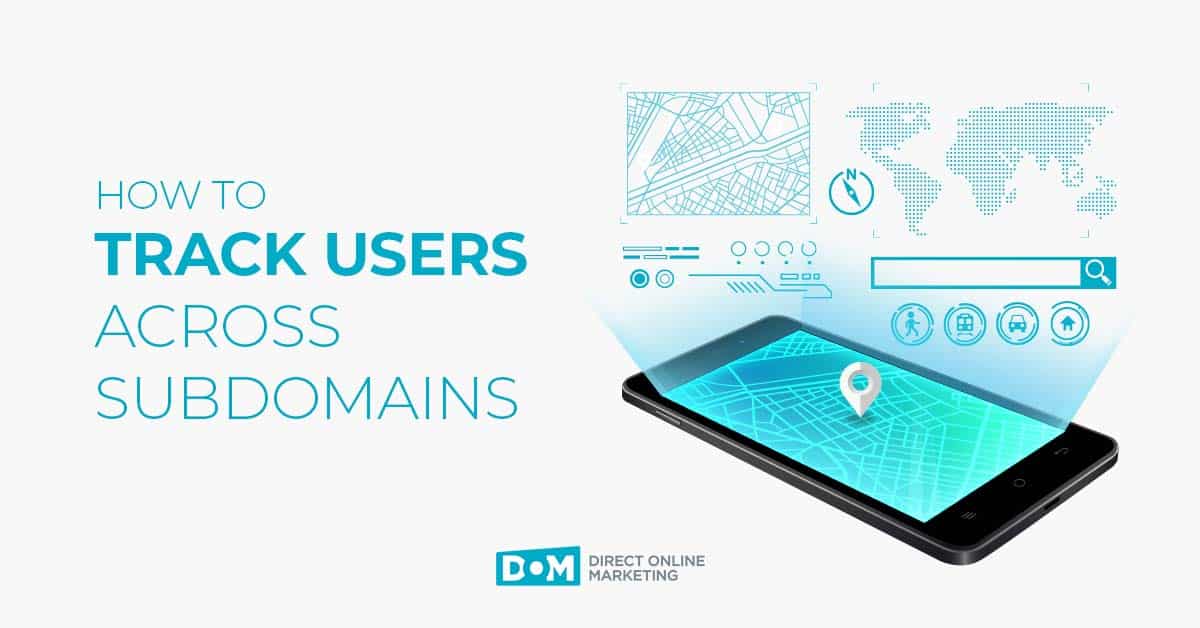
Editor’s Note: This article about GA4 implementation was originally published in the PTC Member News section of the Pittsburgh Technology Council and is reprinted here with permission.
Have you been seeing the acronym GA4 littering your LinkedIn feed and wondered “what the heck is that?” Likely followed by “should I care?”
The answer to the first question: GA4 = Google Analytics 4. The answer to the second? Absolutely (assuming getting insights into how your marketing efforts are impacting sales).
GA4 was actually first released in beta as “Google App + Web” in 2019 and then reintroduced as GA4 in October 2020. Earlier this year, Google announced it’s sunsetting the ubiquitous current version of its analytics platform – Universal Analytics, or GA3 – in 2023.
This change set the stage for 2023 to be the year that GA4 becomes the only analytics solution for any organization currently using Google Analytics. In other words…
You Have No Choice, So Just Flipping Do It!
Otherwise you’ll lose even basic reporting on how your website performs. Forget about advanced insights; you won’t even see how many people came to your site or how they got there.
On July 1, 2023 Google snaps their fingers and your Universal Analytics reporting goes away completely. That means the 28,000,000+ websites currently using the un-upgraded version of Google Analytics have some work to do.
If your website ranks among those 28 million, here’s what the next several months are going to look like for your analytics account:
- Until July 1: all of your data will be collected in Universal Analytics.
- After July 1: you won’t collect any new data.
- After December 31: you won’t be able to access your historical Universal Analytics data in the Google Analytics platform.
(Note: if your Google Analytics property was created after October 2020, you may already be using GA4. Breathe a sigh of relief.)
So does this mean you should wait like the grasshopper until June 30th to switch? I would urge you in the strongest terms not to wait for the following reasons:
- Universal Analytics and GA4 pull data differently, so they aren’t apples-to-apples comparison. You’ll want to run both versions side-by-side so you can compare the two.
- Some of the metrics – like engagement rate – are brand new, as is the user interface. Give yourself time to get educated and used to everything new.
- Custom implementations – if you want to go that route – can take 6-8 weeks or more. And that’s from the start date. If you’re using an outside agency, realize you may have to wait weeks or months to even kick off.
Want more information on the end of life for Google Universal Analytics properties? Click here.
Don’t Just Settle: Build a Whole Measurement Strategy

No matter where you are in the process of setting up GA4 for your organization, you should take this time to take a step back and really evaluate your measurement strategy.
Most marketers we speak with don’t have confidence in the insights they currently receive from Google Analytics – and often aren’t even sure all the data is correct.
Every business and website is unique. Because of that, it’s highly likely that your GA4 implementation will need to be customized as well. Make sure you seize this opportunity upfront to think through a true measurement strategy before you migrate.
That way, you can take this new platform and tap into real, actionable insights into how your target audience is using your website.
Plus, Google has baked in some really cool new features in GA4. It’s more flexible and scalable than Universal Analytics and boasts some predictive features.
In other words, Google will be able to start predicting how some audiences will behave, including what kind of sales and lead conversions you will receive. Keep in mind Google’s crystal ball isn’t perfect, although we expect it to improve other time.
Just be aware that the cost of creating all these new features is that GA4 isn’t plug-and-play like Universal Analytics. You’ll need to spend time strategizing what kind of insights you want, then configuring from there.
Not Sure Where To Start With A GA4 Implementation? We’re Here To Help.

In order to adopt this platform correctly, it’s going to require your business to undergo a complete shift in how you measure campaign performance.
Once you get started with customized GA4 reporting, you’ll be able to make better data-driven decisions with your digital properties and marketing investments.
If you have yet to get started with your migration or have run into roadblocks, our upcoming webinar will be a great place for you to gather your team and get started.
“Is Google Analytics 4 Better? (A: It’s All About The Implementation)” launches December 15th at 1PM. Click here to get registered.
Hope to see you there!
Have questions about setting up GA4 or about the webinar itself? Reach out to us and our team will be happy to help with no obligation.
Supporting tech companies with their GA4 implementation is one of the biggest responsibilities our agency is going to have in the coming year.
Good luck in all your marketing efforts in 2023 and, as always, be generous with giving and receiving help.


